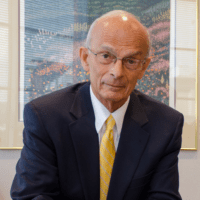After administering the PSSA this spring, your district can look forward to receiving the preliminary results from PDE by August 15, 2006. At that time, you will know whether your schools, grades and subgroups met adequate yearly progress (AYP) or whether some did not. For the first time, the spring 2006 PSSA exam was given to grades 4, 6, and 7 for purposes of calculating AYP. However, PDE has clarified that because they calculate AYP on the basis of two years of information, the first year of data for grades 4, 6 and 7 will simply be reported to districts this year, with the AYP calculation not taking place until there are two years of data in 2007. The applicable AYP benchmark this year is to have 54% of the students scoring at proficient or above in reading, and 45% of students scoring at proficient or above in math.
If you decide to file an appeal on behalf of your district as to any of the AYP determinations reached by PDE, the tentative deadline is August 26, 2006, with final confirmation to be announced when PDE releases the preliminary data file. Keep in mind that there are two levels of appeal within PDE. First, there is an informal appeal level initiated by filing a form with PDE. A second appeal level can be made to the Secretary of Education if PDE denies your first level appeal. Districts should be aware that the Commonwealth Court held that PDE’s process of narrowing the possible issues for an AYP appeal was held to be violative of due process in the Reading School District case. While the Supreme Court has taken the case for review, in the interim, PDE is not placing limitations on the kinds of issues which may be raised by school districts challenging a finding of non-achievement of AYP. We expect that the continued efforts of the nation’s schools to meet the requirements of NCLBA will keep this matter in the news in the coming year.

